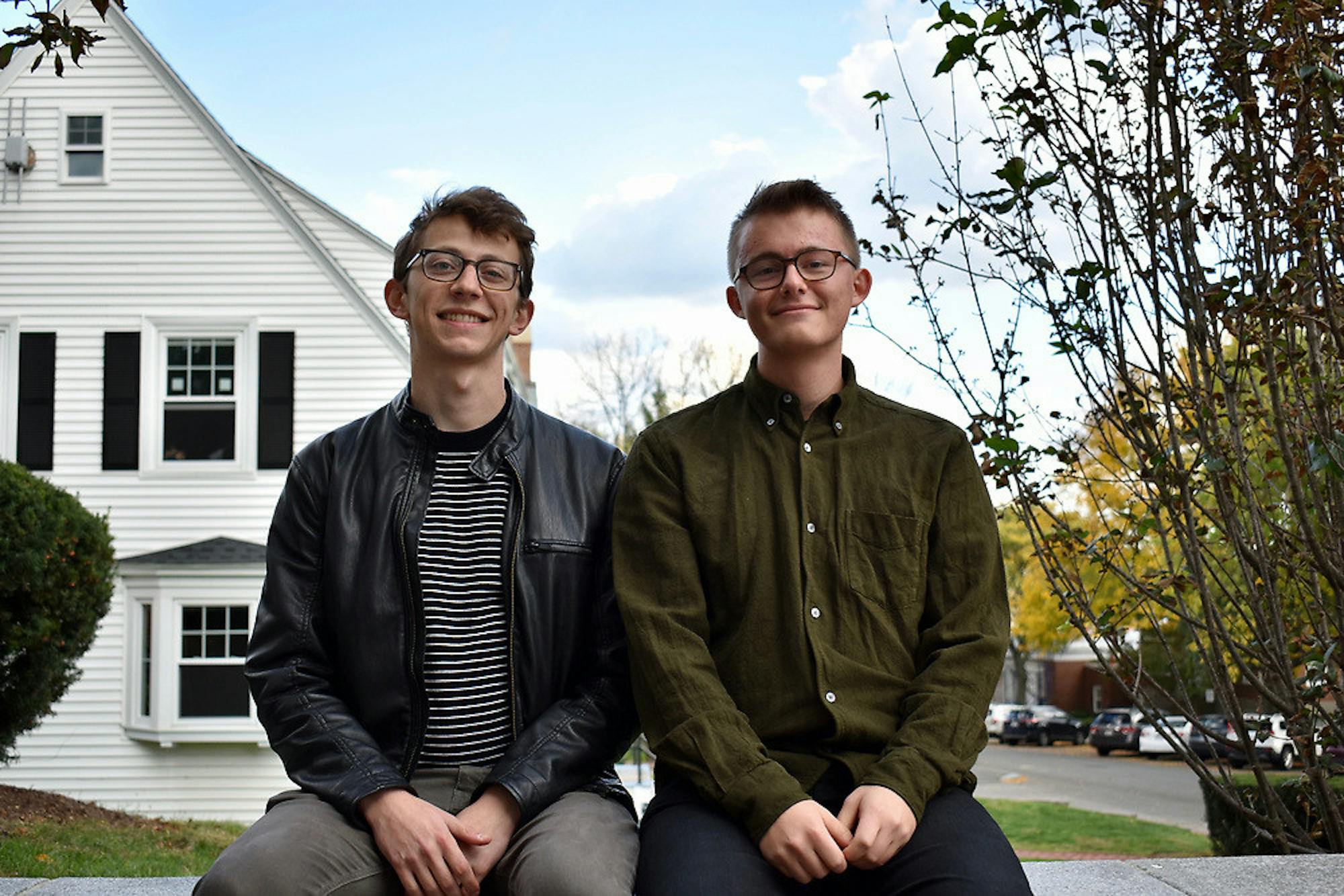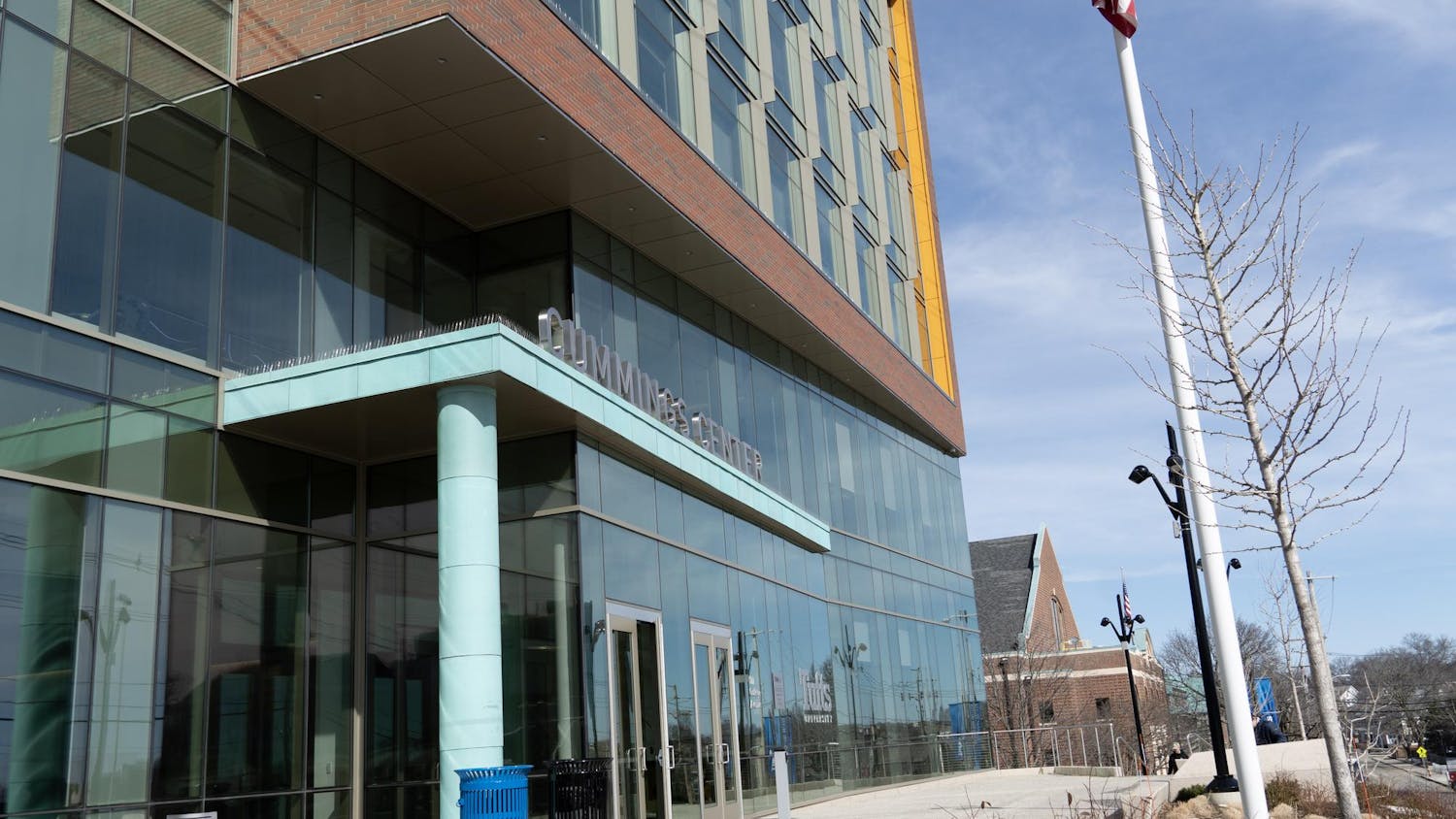Community members, students and members of Tufts Housing League (THL) attended an April 16 meeting held by the team negotiating a new partnership agreement between Tufts and Somerville. The meeting occurred in the Tufts Administration Building. Somerville Mayor Joseph Curtatone and Ward 7 alderwoman Katjana Ballantyne, who are on the negotiating committee, led the meeting.
One of the core issues of the new partnership agreement is Tufts' payment in lieu of taxes (PILOT) to Somerville, a fee that non-profit institutions, whose land is nontaxable, pay to communitiesto help the towns make up for lost taxes.
According to the City of Somerville website, "the Partnership Agreement covers issues related to student housing, partnerships with the Somerville schools, the university’s planning process, and other topics."
Members of the negotiating committee other than Curtatone and Ballantyne also attended, including Andre Green, a member of the Somerville School Committee; Edward Beuchert, a co-founder and current board member of the West Somerville Neighborhood Association; Ben Echevarria, executive director of The Welcome Project; and Joyce Shortt, who lives near Tufts.
Shortt, a member of Our Revolution Somerville, said that negotiations for PILOT had previously only been between mayors and the president of Tufts.
"Our Revolution and its colleagues ... said that there needs to be more of an input besides the president and the mayor, and in fact we learned that members of the Board of Aldermen at that point had been asking for that for a number of years," she said. "So I'd like all of us to take responsibility for making this happen that we actually have a community group doing negotiations."
A 2016 Daily article states that Tufts' PILOT payments to Somerville are significantly smaller and increase much less frequently than its payments to Boston. The article also states that Tufts owns much more property that yields higher value in Somerville than in Boston.
Curtatone said during the meeting that Tufts currently pays a PILOT of $275,000 for each fiscal year. Meanwhile, documents from the City of Boston reviewed by the Daily indicate that Tufts paid $584,147 to Boston in fiscal year 2018.
Tufts' PILOT agreement with Somerville includes not only payments to to the city but also other services and advantages for Somerville residents, according to documents provided by journalist Jane Regan, who attended the meeting, in a WickedLocal article. For example, Somerville high school students are exempt from Tufts' $70 application fee and have the opportunity to participate in essay-writing workshops conducted by Tufts Admissions.
During the meeting, Regan, who used to direct the Somerville Neighborhood News, said she began investigating Tufts' PILOT payments to Somerville a decade ago and noticed the discrepancy in the PILOT agreements Tufts had with Somerville and Boston.
Tufts' former partnership agreement with Somerville expired on June 30, 2018.
Around 30 people attended the meeting, most of whom included Somerville residents and activists. Ballantyne opened the meeting with an introduction of the committee, which began negotiating in January. Ballantyne highlighted areport put together from a survey by Ona Ferguson, senior mediator of the Consensus Building Institute, that aimed to get community feedback on Somerville's Partnership Agreement with Tufts.
The report outlines several issues that Somerville residents have with Tufts, including payments, education of the community, communication through a master plan and housing its students. According to the report, Tufts uses Somerville services, such as its police and fire departments,without paying the same taxes citizens and businesses do to support them.
"As Tufts is a wealthy, prestigious institution, it should be able to pay for the services it uses," the report states.
In addition, the report says that Tufts pays 25% of its real estate value in Boston for its PILOT agreement with the city, while only paying 4% of its estimated property tax value to Somerville.
"This seems unfair and unjustifiable to the community members, especially as Somerville is the primary host community for Tufts," the report reads.
The report also stresses the issue of housing students.
"Tufts should be able to pay more for services and for creating housing or meeting other needs, given that Tufts enrollment has increased by hundreds of students in the last decade," it reads.
According to Ballantyne, the negotiating committee met with Ferguson to discuss the report and the goals of the negotiating, underlining that the committee's goals were in line with the goals of residents the report outlined. Curtatone confirmed this.
"The proposals as what we put forth in our strategy were all generated from the community's feedback," he said.
Ballantyne said that a luncheon including the negotiating committee, University President Anthony Monaco, Director of Community Relations Rocco DiRico and Senior Vice President of University Relations and General Counsel Mary Jeka. Ballantyne said negotiations involving differing themes such as housing, education and values followed.
However, Curtatone said that, although he would like to be transparent, the content and actual progress of the negotiations was confidential.
"Typically when we do a community meeting we try to share as much data ... as possible," Curtatone said. "A lot of the finite points, particular, we will not be able to share. When you enter a negotiation on any subject matter you want to protect the integrity of those conversations."
However, Curtatone did indicate that Tufts and Somerville negotiators were close in reaching an agreement on Tufts reaching parity with Boston's PILOT agreement. He said the negotiating teams of both sides were not close in how Tufts should address issues of housing.
Curtatone also stated that both sides were entering into conversations on benefits and programs for Somerville students as well as both communities reaching their goal of becoming carbon neutral by 2050.
"In general, I think we made some progress made some progress overall in terms of the PILOT agreement; we've still got a ways to go in other areas," he said. "We're not close to a deal."
Ballantyne quickly shifted the conversation to her call for Somerville to require an institutional master plan. According to Ballantyne and an April 10 Daily article, previous attempts to require an institutional master plan by Tufts have not passed the Massachusetts State House due to lobbying by the the Association of Independent Colleges and Universities in Massachusetts (AICUM), which Monaco chaired.
In order to require Tufts to provide an institutional master plan, Somerville would need to exempt itself from the Dover Amendment, a Massachusetts state law which does not allow the restriction of land use by nonprofits. To do this, Ballantyne said she filed for a home rule petition, which allows the State House to provide an exemption to laws for specific municipalities.
According to Ballantyne, the home rule petition to exempt Somerville from the Dover Amendment was written to apply to all large nonprofits, not Tufts specifically. She added that precedent existed for such home rule petitions in Cambridge and Boston.
"I found that [Tufts] were poor communicators. And so the only tool out there that I could see that we can use is by requiring an institutional master plan," she said, citing that she learned of plans for a village housing project on College Avenue, which has since not gone through, from a Daily article.
Although Ballantyne said the institutional master plan was not related directly to a PILOT agreement, she emphasized that she would not back down from trying to require this in negotiations with Tufts.
A community member echoed Ballantyne's comments later in the meeting.
"Every time I call [Tufts], we get put aside, and they're spinning everything to look like [they're] adding 400 beds, but they don't tell us the real numbers," she said.
While this community member acknowledged that Tufts does provide services such as education to Somerville youth and are generally responsible to the student body, she said that she did not trust Tufts.
DiRico responded to these sentiments in an email to the Daily.
"In the past year, the office of Government and Community Relations has hosted 3 community presentations. At these meetings, senior university officials share information on housing, new construction and campus developments. Neighbors also have the opportunity to ask questions and offer feedback on any topic," DiRico wrote.
DiRico said that community members have responded well to these meetings, highlighting new Facebook, Twitter and Instagram accounts created by the university for community members as well as a newsletter his office provides.
Several community members also voiced concern about Tufts students housed off campus, pointing to absentee landlords, unsafe structures and mold in students' houses.
Curtatone agreed, saying that Tufts should increase its housing for students who want to live on campus.
"This has to be a partnership agreement that any student who wants to live on campus should live on campus," he said.
Jim Monagle, a community member who attended the event and participated in a negotiating team around Tufts' institutional master plan in 1988, said that Tufts had around 4,100 students in 1988, and has since expanded the university significantly. He stressed that this caused the university's impact on the community to increase, leading to the need for a greater PILOT agreement.
"[Tufts] sees everything one way, where they have a value to us," he said. "And I always [say]: if we put you in the most expensive city in the Commonwealth, would you be as attractive to your student body as its location here?" he said.
PILOT negotiating committee holds community update

Senior Nate Krinsky and sophomore Connor Goggins, members of Tufts Housing League, pose for a portrait outside of Mayer Campus Center on Oct. 17, 2018.





